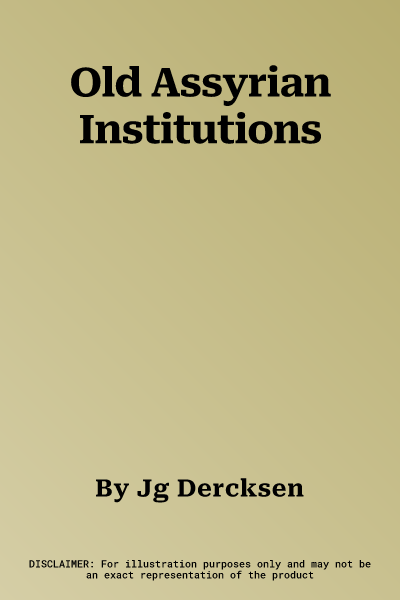Jg Dercksen
(Author)Old Assyrian InstitutionsPaperback, 31 December 2004

Qty
1
Turbo
Ships in 2 - 3 days
Only 4 left
Free Delivery
Cash on Delivery
15 Days
Free Returns
Secure Checkout

Part of Series
Pihans
Print Length
329 pages
Language
English
Publisher
Peeters
Date Published
31 Dec 2004
ISBN-10
9062580998
ISBN-13
9789062580996
Description
Product Details
Author:
Book Format:
Paperback
Country of Origin:
US
Date Published:
31 December 2004
Genre:
Ancient (To 499 A.D.)
ISBN-10:
9062580998
ISBN-13:
9789062580996
Language:
English
Location:
Leuven
Pages:
329
Publisher:
Series: